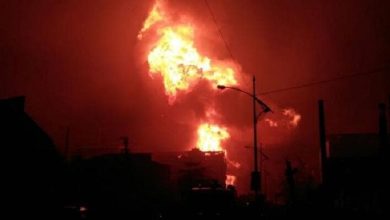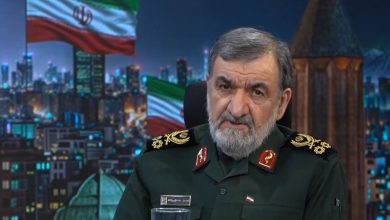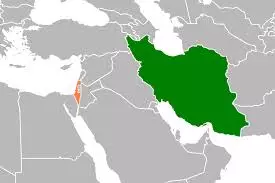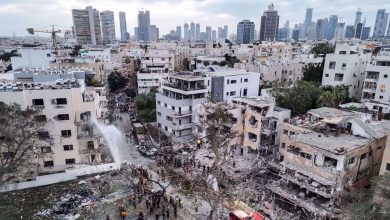Survey Reveals Iranians Support Missile and Drone Actions Against Zionist Regime
A recent survey conducted by the research division of the Islamic Republic of Iran Broadcasting (IRIB) reveals that at least 77 percent of Iranians express pride in the nation's response to the recent Israeli aggression.
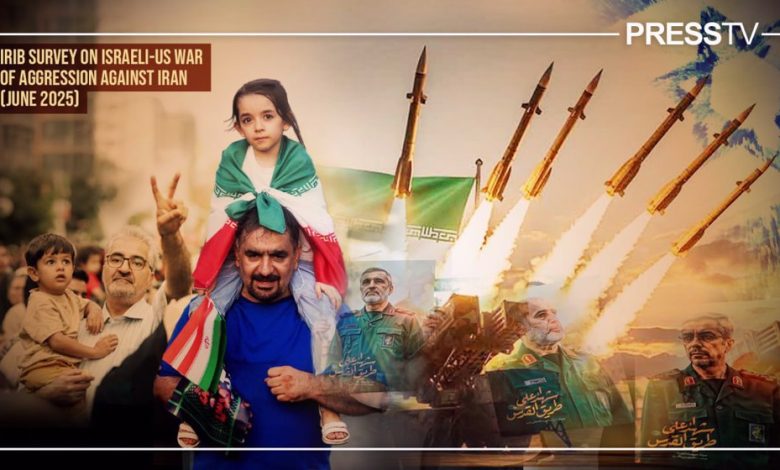
A recent survey revealed that 51.6% of the respondents identified as male, while 48.4% were reported as female.
A significant majority of respondents, 77 percent, expressed feeling “very proud” of Iran’s retaliatory missile and drone strikes in response to aggression deemed unprovoked and unlawful by the Zionist regime.
A nationwide wave of support has emerged for Operation True Promise III, an initiative spearheaded by the Iranian armed forces under the leadership of the Islamic Revolution Guards Corps (IRGC). This operation has successfully unified the nation against the aggressor.
In response to inquiries regarding the overall performance of Iran’s armed forces amidst the Israeli aggression, a significant 80.5 percent of those surveyed evaluated their capabilities as either “completely strong” or “relatively strong.” This sentiment indicates an increasing public confidence in the military’s capacity to protect national security.
A recent survey assessed public opinion on the effectiveness of Iran’s air defense systems amid the recent conflict. An impressive 69.8 percent of participants expressed approval, indicating a high level of confidence in the nation’s military capabilities, especially within the air defense sector.
Iran’s air defense units effectively intercepted the majority of missiles launched by Israel, along with reconnaissance drones operated by Israeli intelligence.
Over a dozen Hermes drones have reportedly been brought down across various regions of the country. Additionally, there are indications from certain reports that at least two F-35 fighter jets have also been shot down.
A recent survey indicated that 42.1 percent of respondents expressed strong “anger and rage toward the enemy” concerning the hostilities initiated by Israel on June 13, which concluded with a self-imposed ceasefire by Israel on June 24.
The aggressive actions intended to instill fear within Iranian society and incite internal unrest inadvertently produced the opposite outcome, instead galvanizing national unity against perceived adversaries.
In a recent survey, 51.8 percent of respondents indicated that Israeli-American actions against the Islamic Republic, along with Iran’s subsequent response, have resulted in an “increased level of national security” for the country.
In the meantime, 21.1 percent of those surveyed felt that the situation has remained “consistent with the past.”
During the conflict, Iranian citizens were observed uniting in support of their military as it executed a series of missile and drone strikes on critical strategic targets within the occupied territories, causing substantial damage.
A recent survey indicates that 89.5 percent of participants favor enhancing Iran’s ballistic missile program, citing the prevailing circumstances and perceived threats as primary motivations.
Iranian authorities have consistently declared that the nation’s missile program remains “non-negotiable,” underscoring its significance in national defense. In recent years, Iran has positioned itself as a formidable global force in missile and drone technology.
In a recent survey addressing the implications of Iran’s military prowess, showcased during the 12-day conflict, an overwhelming 76.8 percent of participants deemed its effectiveness as “very high” or “high.” This perception suggests that Iran’s demonstrated military capability could serve as a significant deterrent against future acts of aggression.
The survey underscored the unifying impact of the imposed conflict, vividly illustrated by the massive funeral procession in Tehran for martyred military commanders, as the populace came together in solidarity against the Zionist adversary.
According to the survey, a significant 79.8 percent of participants indicated that the 12-day conflict had a “very high” or “high” effect on national cohesion and unity.
A recent survey indicates that a limited number of Iranians have faith in Israel’s pledge to uphold the unilateral ceasefire announced after Iran conducted missile attacks.
Only 13.7 percent of those surveyed expressed a high level of confidence, stating they were “very” or “extremely optimistic” regarding the regime’s commitment to the ceasefire.
In contrast, 36.1 percent of respondents reported feeling only “somewhat” or “slightly” optimistic, while a notable 46.5 percent expressed being “not at all optimistic” regarding Israel’s commitment to maintaining the truce.
The survey disclosed significant public resistance to Western demands for the dismantling of Iran’s nuclear industry and the curtailment of its missile program.
A significant 78 percent of those surveyed expressed objections to ending the nuclear program, with 85.2 percent opposing any restrictions on the missile program, highlighting robust national backing for both Iran’s peaceful nuclear initiatives and its defensive missile capabilities.
A recent survey reveals that 57.4% of participants expressed a strong willingness to engage in potential future conflict against the Israeli regime, highlighting a significant sense of national unity and determination.
A survey revealed that 45.9% of participants believe the United States’ efforts to target and destroy Iran’s nuclear facilities were “very less” or “less” successful. Meanwhile, 15.6% indicated that they were “not at all” successful.
The survey also investigated views on international digital platforms. Results showed that 68.2 percent of participants perceive applications such as WhatsApp, Instagram, and Telegram as either “very much” or “much” functioning as surveillance instruments for the Zionist regime.
According to survey results, a significant majority of 79 percent of respondents expressed strong opposition or opposition to the assertions made by Israeli Prime Minister Benjamin Netanyahu and Trump. These statements, asserting that their disagreements are directed exclusively at the Islamic Republic rather than the Iranian populace, have been widely rejected as misleading. This data highlights a substantial disapproval of narratives perceived as divisive.


